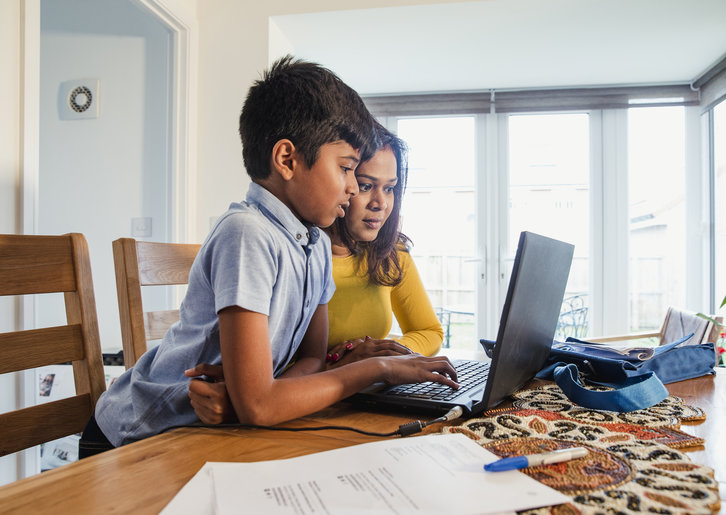
Homework is generally part of any English course and is set with the aim of helping children absorb and build on work done in class and to extend their learning time. Doing homework also helps children on their way to becoming independent learners. Here are some ideas for using LearnEnglish Kids for homework.
Homework and parents
Homework provides a link between school and home. Parents like to see what their children are learning and children, especially very young learners, often like to show parents what they can do.
If you are setting homework from LearnEnglish Kids you need to get parents involved as their children will need permission to use the internet at home. It might be a good idea to begin setting homework from LearnEnglish Kids following a meeting with parents where you have told them about the site. The ideal scenario for learners using the website to do their English homework would be to have a parent or guardian sitting with them as they do it, offering encouragement and support and sharing in the learning process. In reality this may not always be the case, but if parents are at least aware of how they can help their children learn and practise their English at home, we’re increasing the chances of it happening.
Parents who want to know more about how to help their child with English at home might be interested in the Parents section on LearnEnglish Kids. This section includes downloadable booklets and articles, short videos and top tips for helping their child.
What kind of homework?
Stories
You could give your learners three stories to read and listen to at home and decide which they like best and why. Alternatively, you could choose just one story and give children a story worksheet to complete at home. All stories have downloadable worksheets (and answers). Find all the LearnEnglish Kids short stories here:
https://learnenglishkids.britishcouncil.org/en/short-stories
Listening
You could ask your learners to listen to and sing along with a song at home and then have a group sing-along in the next class. This could be a new song or a song you’ve just done in class. There are lots of songs here:
https://learnenglishkids.britishcouncil.org/en/songs
Writing
In the ‘Your turn’ section, children are invited to write about something they are interested in. You could give learners a choice of three topics from the ‘Your turn’ section:
https://learnenglishkids.britishcouncil.org/en/your-turn
Your learners can read any comments already posted under their chosen topic and then send in their own ideas to be published. All contributions are read by a moderator and then published within 24 hours. Tell your learners that you’ll be checking the site to read what they’ve written and point out that writing doesn’t have to be error free!
As children need to become members of LearnEnglish Kids before they can post comments, ask parents to help their child register at home first.
Playing games
Nobody could complain that playing a game for homework is boring! You could choose a game from LearnEnglish Kids and have a quick practice of the game in class first to make sure everyone is clear about how to play it. Set the game for homework then in the next class ask learners to compare their scores or tell a partner how many times they played the game at home. Why not ask children to look around the website to find a game that they like and then tell a partner about it next class? Find the games section here:
https://learnenglishkids.britishcouncil.org/en/games
Paper-based homework
In the worksheets section there is a wide variety of worksheets on different topics, all with answers, that you can print and give to learners as homework. Very young learners can take home something they made in class to play with or use with family members. There are lots of things to make including masks, puppets, clocks and games in the LearnEnglish Kids crafts section.
https://learnenglishkids.britishcouncil.org/en/worksheets
https://learnenglishkids.britishcouncil.org/en/crafts
Checking homework
It can be tricky to check that non-written homework has been done. Get parents on board again here. Make sure they know what homework their child has been set by having your learners copy instructions from the board into their notebooks or diaries. It could be worth giving them a handout with instructions that include web addresses, as these can be difficult to copy correctly.
Keeping homework records is very handy if a problem arises and parents need to be shown hard evidence of occasions when their child hasn’t done his or her homework. It’s also nice to be able to show them a record that their child has always done the homework.
When you have used some of these ideas, why not come back to this page and leave a comment below to tell us how your class went. Let us know if you have any additional ideas!
We have to be very careful to give our students a homework because we must check them!